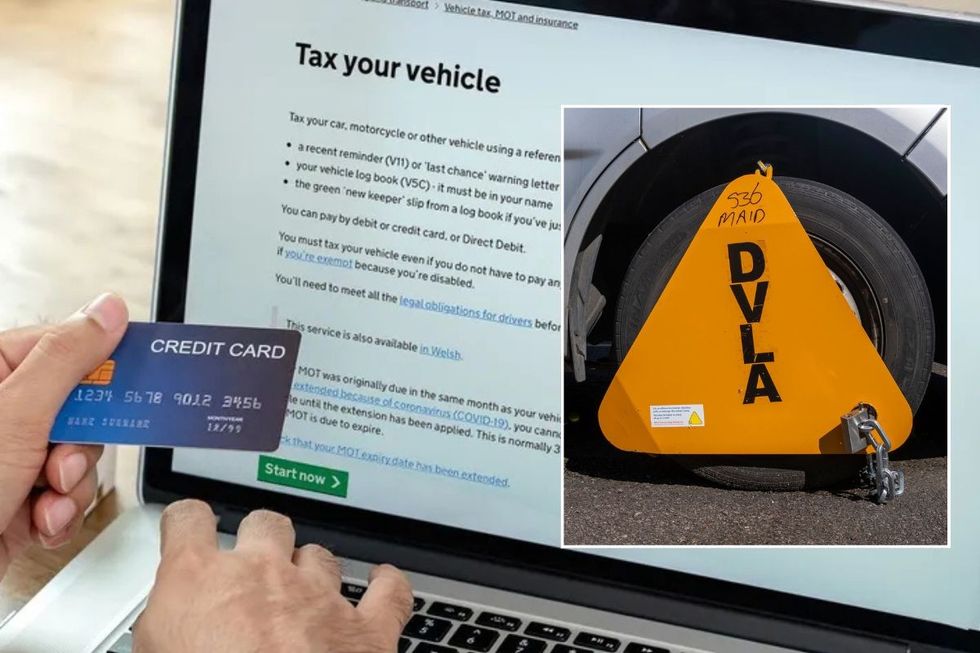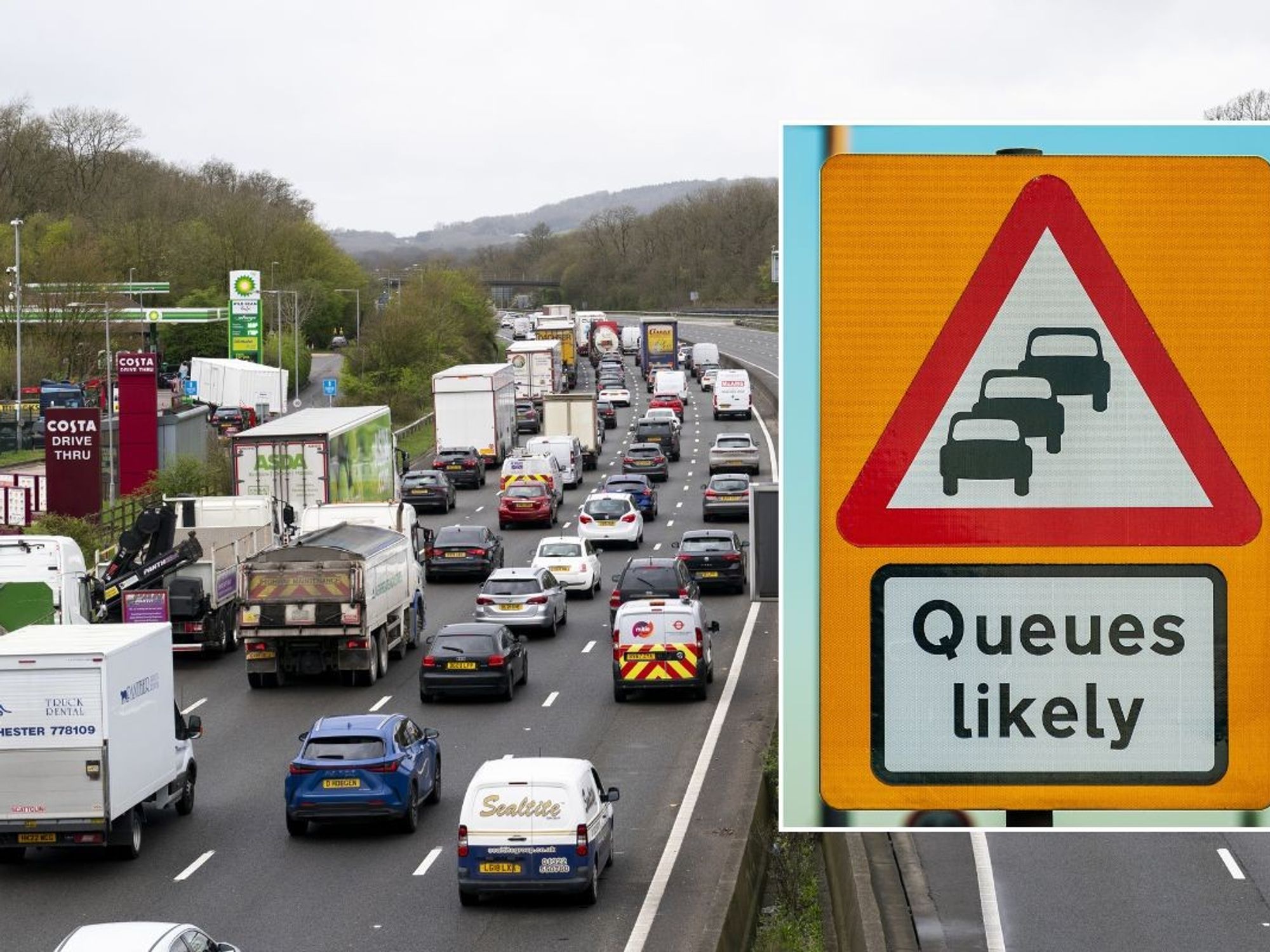WATCH: Rachel Reeves announces new car tax changes
GB NEWS
Millions of motorists are at risk of paying more to stay on the road
Don't Miss
Most Read
New car tax changes are being introduced today, with millions of drivers facing new charges to stay on the road after Chancellor Rachel Reeves introduced new rules last year.
From today, Tuesday, April 1, 2025, drivers will be required to pay more for their Vehicle Excise Duty (VED), regardless of how old their car is.
Chancellor Rachel Reeves introduced a number of new car tax measures in last October's Autumn Statement, many of which were aimed at boosting uptake of zero emission vehicles.
GB News has rounded up the most important changes and the new costs you will be required to pay to stay on the road.
Do you have a story you'd like to share? Get in touch by emailingmotoring@gbnews.uk

Drivers face several new car tax rules today
DVLA/GETTY
First year tax rates
Rachel Reeves changes first year tax rates in October to help bridge the gap between traditional internal combustion engine vehicles and zero emission vehicles.
0g/km - Rising from £0 to £10
1-50g/km - Rising from £10 to £110
51-75g/km - Rising from £30 to £130
76-90g/km - Rising from £135 to £270
91-100g/km - Rising from £175 to £350
101-110g/km - Rising from £195 to £390
131-150g/km - Rising from £270 to £540
151-170g/km - Rising from £680 to £1,360
171-190g/km - Rising from £1,095 to £2,190
191-225g/km - Rising from £1,650 to £3,300
226-255g/km - Rising from £2,340 to £4,680
Over 255g/km - Rising from £2,745 to £5,490
Vehicle Excise Duty
The standard rate of car tax will also increase today, with drivers facing a cost hike in line with inflation, as has been the case in recent years.
The Budget confirmed that standard Vehicle Excise Duty rates for cars, vans and motorcycles, excluding first year rates for cars, would rise in line with the Retail Price Index.
While drivers will be required to pay more, the change will not be as stark as it is for those buying new vehicles. The new standard rate will be £195.

Motorists looking to buy new vehicles could face a huge car tax bill
GETTYExpensive Car Supplement
The Expensive Car Supplement applies to vehicles with a market value of more than £40,000, and costs drivers an additional rate of £425.
Drivers are required to pay the fee for five years from the start of the second licence, which is paid alongside the standard rate of £195.
Chancellor Rachel Reeves acknowledged that the current VED threshold has a "disproportionate impact" on people looking to buy zero emission vehicles.
Budget documents added: "[The Government] will consider raising the threshold for zero emission cars only at a future fiscal event, to make it easier to buy electric cars."
LATEST DEVELOPMENTS:
- Car tax changes launching today will see drivers pay for the first time with 1.4 million Britons impacted
- Drivers with new petrol and diesel cars face £5,490 tax hike today as Rachel Reeves pushes electric vehicles
- Low Emission Zone update could see drivers lose funding across major UK cities as grant ends today
Electric cars
For the first time, owners of electric cars will be required to pay Vehicle Excise Duty (VED), despite pleas from many experts to keep the zero emission vehicles exempt.
Any electric, zero or low emission cars registered on or after April 1, 2025, will need to pay the lowest first year rate of vehicle tax, which will cost them £10, before moving to the standard rate of £195.
Zero emission vehicles registered between April 1, 2017, and March 31, 2025, will pay the standard rate from April 1, 2025, which will cost £195.
Meanwhile, any EVs registered between March 1, 2001, and March 31, 2017, will move to the first band that has a VED value which is currently £20.
Electric vans and motorcycles will also be liable for paying Vehicle Excise Duty.

Electric car owners will have to pay Vehicle Excise Duty for the first time
GETTYCars registered between March 1, 2001, and April 1, 2017
Band A (Up to 100g/km) - Rising from £0 to £20
Band B (101-110g/km) - Remains at £20
Band C (111-120g/km) - Remains at £35
Band D (121-130g/km) - Rising from £160 to £165
Band E (131-140g/km) - Rising from £190 to £195
Band F (141-150g/km) - Rising from £210 to £215
Band G (151-165g/km) - Rising from £255 to £265
Band H (166-175g/km) - Rising from £305 to £315
Band I (176-185g/km) - Rising from £335 to £345
Band J (186-200g/km) - Rising from £385 to £395
Band K (201-225g/km) - Rising from £415 to £430
Band L (226-255g/km) - Rising from £710 to £735
Band M (Over 255g/km) - Rising from £735 to £760













